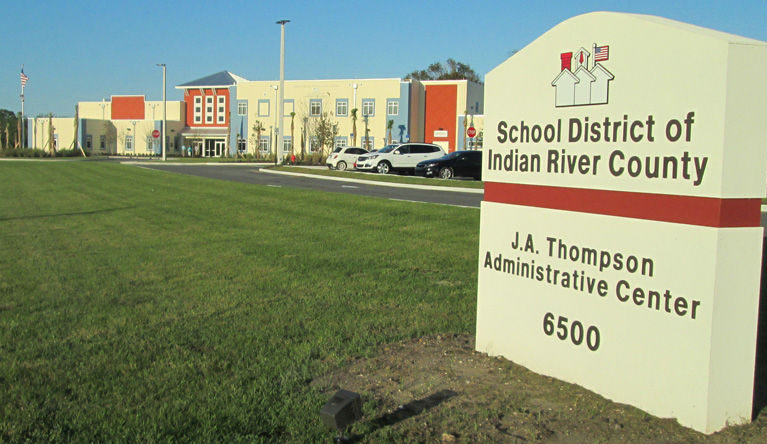
Simmering for three years in the background, a dispute between Indian River County’s charter schools and the School District is now boiling over as the charters light a legal fire under the school board in an attempt to get tax money they feel is rightfully theirs.
The charters – Indian River Charter High School, Imagine School at South Indian River County, Imagine Schools at South Vero, North County Charter School, Sebastian Charter Junior High and St. Peter’s Academy – filed a lawsuit in circuit court on May 27, the first in Florida to challenge a school board’s tax-distribution authority.
Even though the charters are public schools entitled to tax dollars, they say they have been shortchanged by the Indian River County School Board for the past three years.
Gene Waddell, president of the Indian River Charter High School board, said the school board came to the charter school leaders in 2012 and asked them to help get a referendum passed to replace and increase a school tax levy soon to expire.
The charters gave their support with the understanding that their students would count equally with other public school students, and the money would be shared among schools on an equitable per student basis.
The referendum stated it was for “all students” in the district, and by law, public charter school students are supposed to be funded equally, according to Waddell.
The 0.60 levy “passed overwhelmingly” in November 2012. Because of the levy, property owners in the county pay an extra 60 cents for each $1,000 of assessed value each year, which brought in an extra $26 million in revenue for the schools over the past three years.
So far, so good. But when it came to doling out the revenue, which is controlled by the district, the charter schools were given only 5 percent of the total collected – even though charter students make up 13 percent of the county’s student population.
Waddell said the district owes the charter schools about $2 million in back disbursements. In the coming year, the fourth and final year of the levy voters approved in 2012, another $600,000 to $700,000 will be due to the charters according to their calculation.
District Superintendent Mark Rendell and the school board’s attorneys, Suzanne D’Agresta and Vivian Cocotas, insist the charters are not owed any money.
The circuit court, with Judge Paul Kanarek presiding, will decide who is right.
The charter schools have asked for the case to be put on the “rocket docket,” or in legal terms, they’ve requested “injunctive relief.” To get injunctive relief, they must show immediate need and irreparable harm.
“Each year that a charter school is inequitably funded is the lost opportunity for a charter school’s student to receive educational opportunities and services. In short, a child gets one chance to receive an education. In this regard, the damage suffered by current charter school students with the District is irreparable,” the attorney for the charters, Shawn Arnold, wrote in the filing.
The charters also have to demonstrate the greater public good will not be harmed if the school district is forced to fork over about $2 million immediately along with “any further relief that is just and appropriate under the circumstances,” such as interest on any money owed and legal fees.
“If an injunction is granted, the district will suffer no hardship,” Arnold’s complaint says, because the district has stockpiled the money from the tax and the “reserves … exceed the amount owed to the Plaintiffs.”
The complaint cites several laws indicating charter schools are owed an equal share of the property tax money in question
However, the school board’s attorney, Suzanne D’Agresta, has advised the school board that the 2012 tax levy revenue does not have to be shared with charter schools, basing her argument on her reading of state law.
The charter schools’ case appears to be the first that will test a Florida school board’s authority over the distribution of local property taxes.
“We believe this is a case of first impression,” said Arnold, meaning a question of interpretation of law is presented which has never arisen before in any reported case.
The Florida Charter School Alliance could find no similar complaint among its members, and Department of Education Deputy Communications Director Cheryl Etters said she did not know of any legal or informal complaint concerning property taxes withheld from charter schools.
In a related wrinkle, the school board voted last week to put a new property tax on the ballot on Aug. 30, asking for a .50 mill levy to replace the current .60 mill tax that will expire next year.
Even though the district denies it has any obligation to share equally the proceeds from tax now in effect, it has agreed to share revenue from the proposed tax extension on an equal per-student basis, and the charters are backing the new levy.



